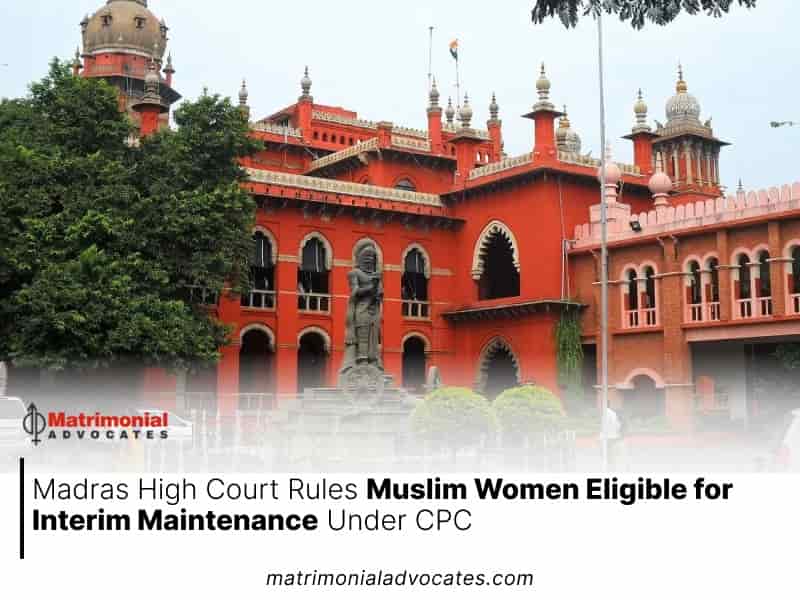
The Court said that if it were to accept an argument that neither the Dissolution of Muslim Marriage Act nor the CPC provide for the award of such maintenance, “the wife would be thrown to the wolves.”
The Madras High Court has ruled that a Muslim woman who files for divorce under the Dissolution of Muslim Marriage Act, 1939, is entitled to interim maintenance while her divorce petition is pending.
In an order dated September 2, Justice V Lakshminarayanan stated that although the 1939 Act does not specifically provide for interim maintenance, courts can use Section 151 of the Code of Civil Procedure (CPC) to grant such support.
Justice Lakshminarayanan emphasized that a court cannot ignore a woman’s claim of being unable to support herself.
The Court also rejected the opposing counsel’s argument that Section 151 cannot be used to award interim maintenance, as it offers only procedural, not substantive, relief.
The Court opined that if such an interpretation were to be accepted, then the “wife would be thrown to the wolves and would have to run from pillar to post in order to secure a basic right which is the right to live with decency and dignity.”
Justice Lakshminarayan further said that the purpose of granting interim maintenance during litigation was to enable a woman to “survive and fight the litigation.”
“Grant of maintenance is in a way granting an equal opportunity and making the litigative playing field equal. I am able to visualize the situation, if the litigant is asked to litigate the matter as against taking care of her child, obviously the latter will become more important. If she is provided with sufficient maintenance for herself and her child, then she can concentrate on the litigation. By directing the husband to pay interim maintenance to the wife, I am only levelling the playing field as stated above. I feel, this would ensure a legal system providing an equal opportunity in order to promote justice,” the Court added.
The Court was considering a petition filed by a man challenging a family court’s decision in Udhagamandalam to grant interim maintenance to his estranged wife.
The wife’s counsel argued that she had no source of income and was unable to support herself. They further contended that her estranged husband, a pediatric cardiologist with a substantial income, was financially capable of providing interim maintenance.





